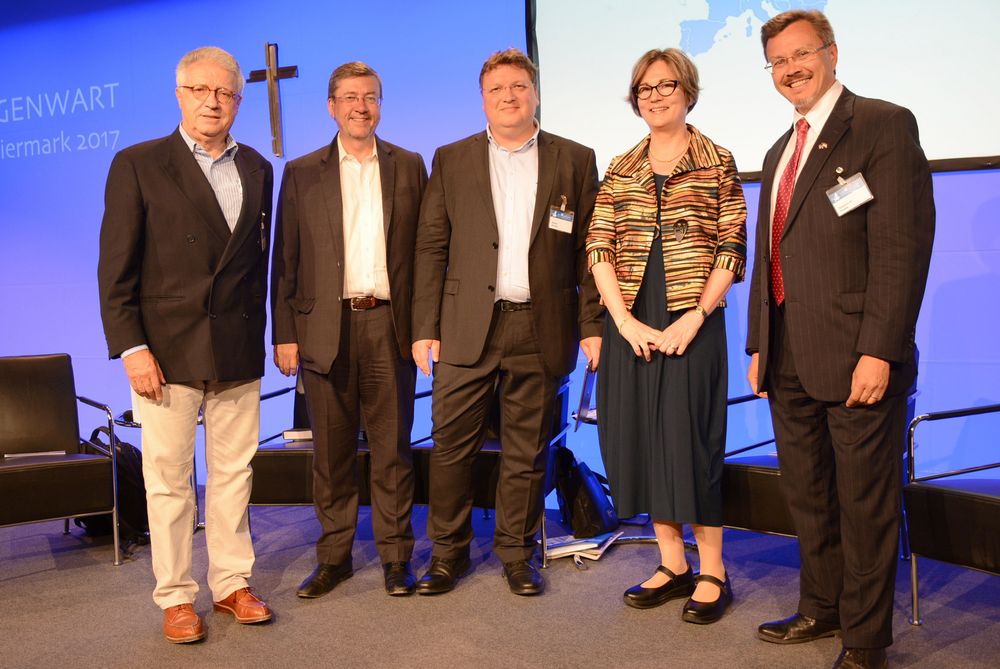Michaela Hoenicke-Moore (University of Iowa), this year’s US Scholar Fulbright Lecturer in American Studies, was invited to participate in the biannual Whitsun Dialogue at Seggau Castle, an event hosted by the Styrian Government and the Diocese of Graz-Seckau and organized in cooperation with Club Alpbach Styria (31 May – 2 June, 2017). Set in a border region in Southern Styria, the Whitsun Dialogue has established itself as an institutionalized platform for international and interdisciplinary debate in a setting that is future-oriented and conscious of the challenges Europe is faced with.
The Whitsun Dialogues 2017 were dedicated to the topic “Europe. USA. 3.0 – Values. Interests. Perspectives” and was inspired by the 70th anniversary of the Marshall Plan. Bearing the close political and economic relations between the US and postwar Europe in mind, the Whitsun Dialogue asked burning questions regarding common values, perspectives and interests, and technological and economic transformations that shape world politics today.
Michaela Hoenicke-Moore was invited to speak about the European Recovery Program (ERP), which had its origins in American Cold War policy. At the same time, Hoenicke-Moore noted, the ERP lay at the heart of an “empire of invitation,” that is, the Europeans’ urgent request that the US assume a leading role in the reconstruction and integration of Western Europe. In her remarks, Hoenicke-Moore focused on underlying motivations of the ERP and its result for the 16 European countries that benefitted from US foreign aid. She argued that, for instance, the New Deal sense of interdependence and solidarity inspired the Marshall Plan.
Other speakers at the Whitsun Dialogue included former Federal Chancellor Alfred Gusenbauer, Eugene Young, Chargé d’Affaires a.i. at the US Embassy, and Stephen A. Hubler, Economic Political Councilor at the US Embassy.
